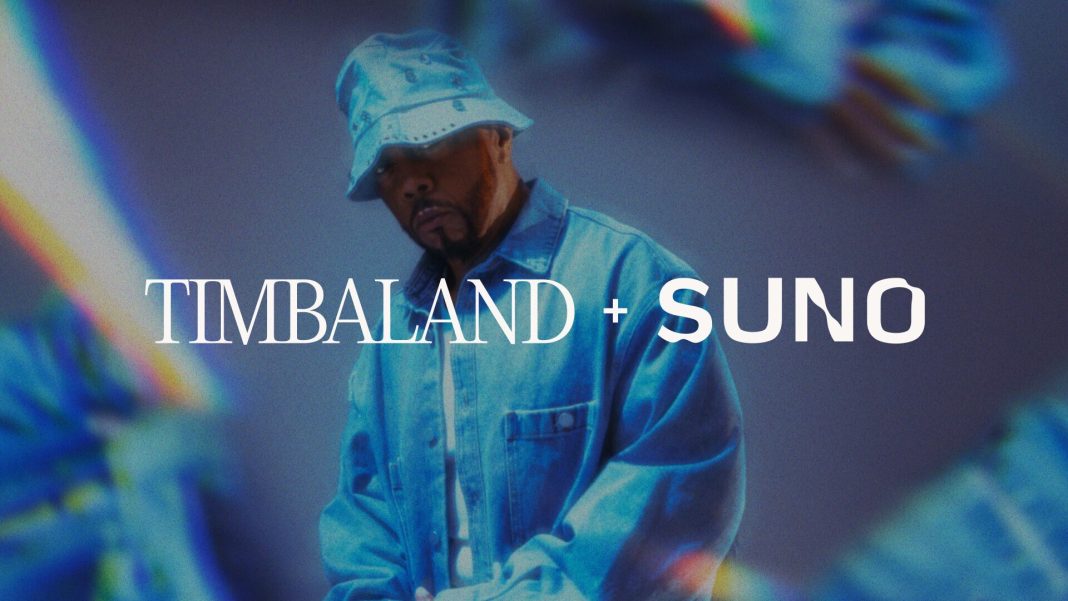AI music generator Suno is one of the most controversial entities in the music business today.
In June, the $500 million company was sued by the major record companies, along with fellow AI firm Udio, for allegedly training their systems using the majors’ recordings without permission – an accusation they pretty much admitted to in court filings in August.
The legal headache and negative perception in the record industry don’t seem to have stopped one Grammy-winning artist and producer from working with the company.
Timbaland has formed an official partnership with Suno, joining the platform as a strategic advisor after what it says were “months” of him “being a top user of the platform”.
“We’re going to open up the floodgates for generations of artists to flourish on this new frontier.”
Timbaland
In a statement issued with the official announcement on Tuesday (October 22), Timbaland said that “by combining forces [with Suno], we have a unique opportunity to make AI work for the artist community and not the other way around”.
He added: “We’re seizing that opportunity, and we’re going to open up the floodgates for generations of artists to flourish on this new frontier.”
According to Suno, in his new capacity as a strategic advisor, Timbaland will be taking an active role and will support the company with day-to-day product development and strategic creative direction “in order to ensure new generative music tools will meet the needs of both established and emerging artists”.
Suno’s official announcement added that “this partnership places Timbaland on the ground floor of what has all the makings of the next music industry revolution.”
Timbaland isn’t only joining the company in a strategic advisory role: he’s also previewing his latest single, Love Again, exclusively on the platform.
He is also inviting the Suno userbase to participate in a Remix Contest, which will include feedback and judging from Timbaland himself.
Over $100,000 in prizes will be handed over to Suno users for winning remixes, along with the opportunity to have Timbaland release the top two remixes of Love Again on DSPs.
“When I heard what Suno was doing, I was immediately curious,” said Timbaland. “After witnessing the potential, I knew I had to be a part of it. I’m excited and grateful to Suno for this opportunity.”
“It’s an honor to work with a legend like Timbaland. At Suno, we’re really excited about exploring new ways for fans to engage with their favorite artists.”
Mikey Shulman, Suno
Mikey Shulman, CEO of Suno, added: “It’s an honor to work with a legend like Timbaland. At Suno, we’re really excited about exploring new ways for fans to engage with their favorite artists.
“With Timbaland’s guidance, we’re helping musicians create music at the speed of their ideas—whether they’re just starting out or already selling out stadiums. We couldn’t be more excited for what’s ahead!”
Suno and Udio were sued by the major record companies in June. In its response filed in US federal court in August, Suno explained that its “training data includes essentially all music files of reasonable quality that are accessible on the open Internet, abiding by paywalls, password protections, and the like, combined with similarly available text descriptions.”
Both Suno and Udio also argued that their use of copyrighted materials – owned by Sony Music Group, Universal Music Group and Warner Music Group – falls under the “fair use” exemption to US copyright law.
The RIAA, the organization that represents the recorded music industry in the US, was swift in its counter-response, describing the companies’ admission regarding using copyrighted music to train their AI as a “major concession” in the high-stakes legal proceedings.
“After months of evading and misleading, defendants have finally admitted their massive unlicensed copying of artists’ recordings. It’s a major concession of facts they spent months trying to hide and acknowledged only when forced by a lawsuit,” said an RIAA spokesperson.
“Their industrial scale infringement does not qualify as ‘fair use’. There’s nothing fair about stealing an artist’s life’s work, extracting its core value, and repackaging it to compete directly with the originals, as the Supreme Court just held in its landmark Warhol Foundation case.”
Music Business Worldwide


